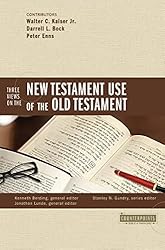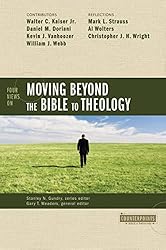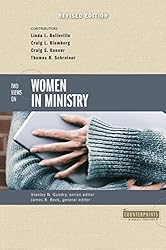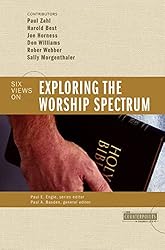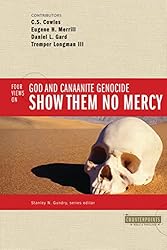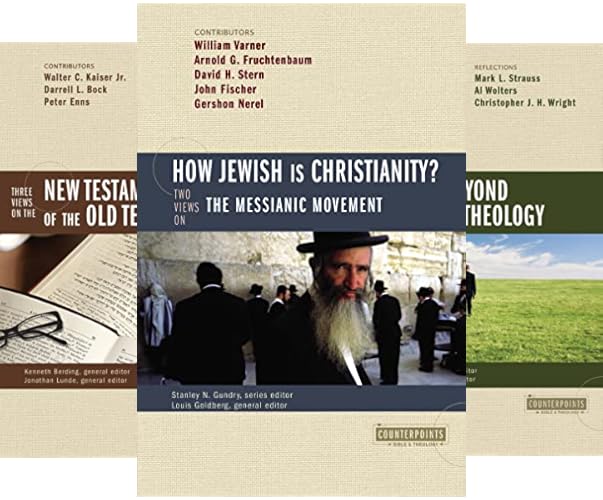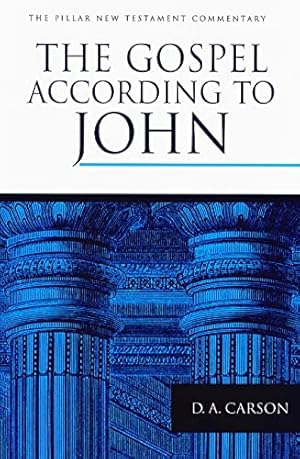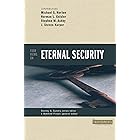Learn more
These promotions will be applied to this item:
Some promotions may be combined; others are not eligible to be combined with other offers. For details, please see the Terms & Conditions associated with these promotions.
Your Memberships & Subscriptions

Download the free Kindle app and start reading Kindle books instantly on your smartphone, tablet, or computer - no Kindle device required.
Read instantly on your browser with Kindle for Web.
Using your mobile phone camera - scan the code below and download the Kindle app.

Are Miraculous Gifts for Today?: 4 Views (Counterpoints: Bible and Theology) Kindle Edition
Are Miraculous Gifts for Today? takes you to the heart of one of the most dividing questions in the Church today: how are the Holy Spirit’s miracles at work among God's people now?
Is he still actively giving the gifts of tongues, prophecy, and healing that fill the book of Acts? Is he driving out demons when Christians command them to flee? Or are these events confined to the time of the early church and the apostles?
This volume of the Counterpoints series provides an impartial format for comparing the four main positions on present-day miracles (including the history and distinctions between the three positions that affirm miraculous gifts) with voice also given to a large sector of open-but-cautious evangelicals:
- Cessationist: there are no miraculous gifts of the Holy Spirit today.
- Pentecostal: gifts are intended for today, with certain nuances focused on baptism and speaking in tongues.
- Charismatic: gifts are intended for today and should be actively practiced.
- Third Wave: gifts are intended for today, with greater emphasis on baptism and less on tongues.
This thought-provoking book will help Christians on every side of the miraculous gifts debate to better understand their own position and the positions of others.
The Counterpoints series presents a comparison and critique of scholarly views on topics important to Christians that are both fair-minded and respectful of the biblical text. Each volume is a one-stop reference that allows readers to evaluate the different positions on a specific issue and form their own, educated opinion.
- LanguageEnglish
- PublisherZondervan Academic
- Publication dateOctober 11, 2011
- File size2.8 MB
Shop this series
See full series- Kindle Price:$25.97By placing your order, you're purchasing a license to the content and you agree to the Kindle Store Terms of Use.
- Kindle Price:$34.95By placing your order, you're purchasing a license to the content and you agree to the Kindle Store Terms of Use.
- Kindle Price:$66.40By placing your order, you're purchasing a license to the content and you agree to the Kindle Store Terms of Use.
- Kindle Price:$315.14By placing your order, you're purchasing a license to the content and you agree to the Kindle Store Terms of Use.
Shop this series
This option includes 3 books.
This option includes 5 books.
This option includes 10 books.
This option includes 36 books.
Customers also bought or read
- Strange Fire: The Danger of Offending the Holy Spirit with Counterfeit Worship
 Kindle Edition$14.99$14.99
Kindle Edition$14.99$14.99 - A Biblical Case for Cessationism: Why the Miraculous Gifts of the Spirit Have Ended
 Kindle Edition$9.99$9.99
Kindle Edition$9.99$9.99 - Three Views on the Millennium and Beyond (Counterpoints: Bible and Theology)
 Kindle Edition$8.49$8.49
Kindle Edition$8.49$8.49 - Surprised by the Power of the Spirit: Discovering How God Speaks and Heals Today
 Kindle Edition$6.99$6.99
Kindle Edition$6.99$6.99
Customers who bought this item also bought
From the Publisher

Leading biblical scholars discuss urgent topics of theology, the Bible, and the church.
Celebrated Editors and Contributors
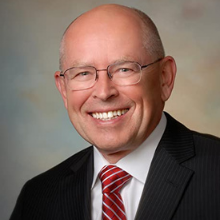
Wayne Grudem
Wayne Grudem (PhD, University of Cambridge; DD, Westminster Theological Seminary) is distinguished Research Professor of Theology and Biblical Studies at Phoenix Seminary and the author of the bestselling Systematic Theology.
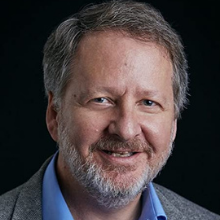
Mark L. Strauss
Mark L. Strauss (Ph.D., Aberdeen) is University Professor of New Testament at Bethel Seminary San Diego, where he has served since 1993. He is the author of various books and articles including commentaries on Mark's Gospel in the Zondervan Exegetical Commentary Series (2014) and Expositors Bible Commentary (2010).

Preston Sprinkle
Dr. Preston Sprinkle has a Ph.D. from Aberdeen University (Scotland). He is a New York Times bestselling author. His books include Erasing Hell and Living in a Gray World.

William Lane Craig
William Lane Craig is Research Professor of Philosophy at Talbot School of Theology and Professor of Philosophy at Houston Baptist University.
Complete your library with other books in the Counterpoints series!
The Bible has long served as the standard for Christian practice, yet believers still disagree on how some biblical passages should be interpreted and applied.
The Counterpoints series presents a comparison and critique of scholarly views regarding topics important to Christians that are both fair-minded and respectful of the biblical text. Each volume is a one-stop reference that allows readers to evaluate the different positions of a specific issue and form their own, educated opinion.

Four Views on the Book of Revelation
|

Four Views on Hell
|

Three Views on the Millennium and Beyond
|

Four Views on Salvation in a Pluralistic World
|

Five Views on Law and Gospel
|
|
|---|---|---|---|---|---|
| Customer Reviews |
4.7 out of 5 stars 186
|
4.4 out of 5 stars 118
|
4.4 out of 5 stars 158
|
4.6 out of 5 stars 72
|
4.4 out of 5 stars 85
|
| Price | $10.00$10.00 | $16.70$16.70 | $13.14$13.14 | $15.94$15.94 | $16.83$16.83 |
| Editor | C. Marvin Pate | William Crockett | Darrell L. Bock | Dennis L. Okholm & Timothy R. Phillips | Stanley N. Gundry |
| Page Count | 256 | 192 | 336 | 288 | 416 |
| e-book | ✓ | no data | ✓ | ✓ | ✓ |

Editorial Reviews
From the Author
From the Back Cover
Are Miraculous Gifts for Today? takes you to the heart of the charismatic controversy. It provides an impartial format for comparing the four main lines of thinking: cessationist, open but cautious, third wave, and Pentecostal/charismatic. The authors present their positions in an interactive setting that allows for critique, clarification, and defense.
This thought-provoking book will help Christians on every side of the miraculous gifts debate to better understand their own position and the positions of others.
Wayne Grudem has brought online the four major views on miraculous gifts today. Downloading them into your own understanding takes effort, but the worldwide network that you join is the fellowship of the Spirit!
The Counterpoints series provides a forum for comparison and critique of different views on issues important to Christians. Counterpoints books address two categories: Church Life and Bible and Theology. Complete your library with other books in the Counterpoints series.
About the Author
Robert L. Saucy was distinguished professor of systematic theology at Talbot School of Theology, Biola University, in Los Angeles.
Wayne Grudem is distinguished research professor of Theology and Biblical Studies at Phoenix Seminary in Phoenix, Arizona. He holds degrees from Harvard (AB), Westminster Theological Seminary (MDiv, DD), and Cambridge (PhD). He is the author of more than 30 books including the bestselling Systematic Theology.
Stanley N. Gundry is executive vice president and editor-in-chief for the Zondervan Corporation. He has been an influential figure in the Evangelical Theological Society, serving as president of ETS and on its executive committee, and is adjunct professor of Historical Theology at Grand Rapids Theological Seminary. He is the author of seven books and has written many articles appearing in popular and academic periodicals.
Product details
- ASIN : B004VSDF2W
- Publisher : Zondervan Academic
- Accessibility : Learn more
- Publication date : October 11, 2011
- Language : English
- File size : 2.8 MB
- Simultaneous device usage : Up to 5 simultaneous devices, per publisher limits
- Screen Reader : Supported
- Enhanced typesetting : Enabled
- X-Ray : Not Enabled
- Word Wise : Enabled
- Print length : 462 pages
- ISBN-13 : 978-0310871361
- Page Flip : Enabled
- Part of series : Counterpoints: Bible and Theology
- Best Sellers Rank: #348,703 in Kindle Store (See Top 100 in Kindle Store)
- #89 in Pneumatology Christian Theology
- #108 in Soteriology Christian Theology
- #1,038 in Christian Apologetics (Books)
- Customer Reviews:
About the authors

Wayne Grudem (PhD, University of Cambridge; DD, Westminster Theological Seminary) is distinguished research professor of theology and biblical studies at Phoenix Seminary, having previously taught for 20 years at Trinity Evangelical Divinity School. He is a former president of the Evangelical Theological Society, a member of the Translation Oversight Committee for the English Standard Version of the Bible, the general editor of the ESV Study Bible, and has published over 20 books.

Sam has spent 39 years in ministry as a pastor, professor and author. He was visiting Associate Professor of Theology at Wheaton College from 2000–2004, and is currently Lead Pastor for Preaching and Vision at Bridgeway Church in Oklahoma City. He has authored 22 books and founded Enjoying God Ministries. He’s a graduate of The University of Oklahoma (B.A.), Dallas Theological Seminary (Th.M) and The University of Texas (Ph.D.). He and his wife Ann have been married for 40 years and are the parents of two grown daughters and have four grandchildren. On a more personal level, Sam loves baseball, books, movies, and anything to do with the Oklahoma Sooners.

Richard B. Gaffin, Jr. is professor of biblical and systematic theology. He is an ordained teaching elder in the Orthodox Presbyterian Church.
Customer reviews
Customer Reviews, including Product Star Ratings help customers to learn more about the product and decide whether it is the right product for them.
To calculate the overall star rating and percentage breakdown by star, we don’t use a simple average. Instead, our system considers things like how recent a review is and if the reviewer bought the item on Amazon. It also analyzed reviews to verify trustworthiness.
Learn more how customers reviews work on AmazonCustomers say
Customers find the book insightful and well-articulated about spiritual gifts, with one review noting its thorough biblical evidence. The dialogue quality receives positive feedback, with one customer mentioning it offers guidelines for continued discussion. The book's pacing is appreciated, with one customer describing the chapters as solid.
AI Generated from the text of customer reviews
Select to learn more
Customers find the book well-articulated and insightful, with one customer noting its clear presentation of Pentecostal beliefs.
"...this book for the following five reasons: (1) You will learn much about Christian history - in particular about the Redemptive Historical Method of..." Read more
"...Second, the ultimate purpose of the gifts is to build up the body of Christ, Third, Scripture indicates the gifts should continue until Jesus..." Read more
"...Holy Spirit's or the church's work but a unique, completed epoch in the history of redemption characterized by the work and presence of the original..." Read more
"...This is a very thought provoking and theologically loaded book that tackles many common questions that arise regarding the miraculous...." Read more
Customers appreciate the dialogue in the book, with one mentioning it offers guidelines for continued discussion and another noting its focus on speaking in tongues.
"...great example of the way Christians should approach differences - with dialogue, in humility, and pursuing the truth in community." Read more
"...include the prophetic gifts: gifts of prophecy, tongues, interpretation of tongues, the word of wisdom and the word of knowledge...." Read more
"...In particular, this work focuses on speaking in tongues, prophecy, and healing ministries...." Read more
"This debate was really good! This lead me to investigate more and I finally changed my views...." Read more
Customers appreciate the pacing of the book, with one noting that the chapters are solid and well-defended by the various writers.
"...volume of the Counterpoints series from Zondervan, the chapters are fairly solid...." Read more
"Excellent book and it was in great condition. But, I didn't know that it was going to be as theologically difficult as it is...." Read more
"...Glad that all these views were represented and well-defended by the various writers." Read more
Top reviews from the United States
There was a problem filtering reviews. Please reload the page.
- Reviewed in the United States on September 21, 2013This will be one of the longest book reviews I've ever written. I'm writing it as much for me (to sort through what I read) as anyone else. I want to give an overview of the positions in the book, their presenters, and the pros and cons of each position as represented by the presenters. Then I would like to close this review with the strengths and weaknesses of the arguments that were presented and whether or not there was any resolution.
The essential issues addressed in this book by four presenters and one facilitator is related to these important questions: "How is the Holy Spirit working in churches today? Is he really giving miraculous healings and prophecies in tongues? Is he giving Christians new power for ministry when they experience a 'baptism in the Holy Spirit' after conversion? Is he driving out demons when Christians command them? Or are these events confined to a distant past, to the time when the New Testament was being written and living apostles taught and governed--and worked miracles--in the churches? There are many Pentecostals who say that Christians should seek to be baptized in the Holy Spirit after conversion, and that this experience will result in a new spiritual power for ministry. But other evangelicals respond that they already have been baptized in the Holy Spirit, because it happened the moment they became Christians, Who is right? What are the arguments on each side?"
In addition to these questions there are many differences over what spiritual gifts are currently in operation today. "Can people have a gift of prophecy today, so that God actually reveals things to them and they can tell these revelations to others? Or was that gift confined to the time when the New Testament was still unfinished, in the first century A.D.? And what about healing? Should Christians expect that God will often heal in miracles when we pray today? Can some people still have the gift of healing? Or should our prayer emphasis be that God will work to heal through ordinary means, such as doctors and medicine? Or again, should we mostly encourage people to see the sanctifying value of sickness and pray that they will have grace to endure it?
Lastly, questions related to what is speaking in tongues? How should they be practiced in the church (if at all)? And should evangelism and ministry be accompanied by demonstrations of God's miraculous power? These and many more questions and issues are addressed by the presenters.
The presenters consist of two Theologians that would lean toward the cessasionist category. Some well-known schools that have traditionally represented cessationism include: Westminster Theological Seminary, Dallas Theological Seminary, and The Master's Seminary. Cessationists argue "that there are no miraculous gifts of the Holy Spirit today. Gifts such as prophecy, tongues, and healing were confined to the first century, and were used at the time the apostles were establishing the churches and the New Testament was not yet complete."
Representing the Cessationist position is Dr. Richard B. Gaffin. He has been a long time Professor of Systematic Theology at Westminster Theological Seminary in Philadelphia. Dr. Gaffin has written a book defending this position entitled Perspectives on Pentecost: Studies in New Testament Teaching on the Gifts of the Holy Spirit (Phillipsburg, N.J.: P&R, 1979). Gaffin has degrees from Calvin College (A.B.), and Westminster Seminary (B.D., Th.M., Th.D.), and is also a minister in the Orthodox Presbyterian Church.
The next position discussed in the book is called the "open but cautious" position. The open but cautious position is described this way by the editor: "These people have not been convinced by the cessationist arguments that relegate certain gifts to the first century, but they are not really convinced by the doctrine or practice of those who emphasize such gifts today either. They are open to the possibility of miraculous gifts today, but they are concerned about the possibility of abuses that they have seen in groups that practice these gifts. They do not think speaking in tongues is ruled out by Scripture, but they see many modern examples as not conforming to scriptural guidelines; some also are concerned that it often leads to divisiveness and negative results in churches today. They think churches should emphasize evangelism, Bible study, and faithful obedience as keys to personal and church growth, rather than miraculous gifts. Yet they appreciate some of the benefits that Pentecostal, Charismatic, and Third Wave churches have brought to the evangelical world, especially a refreshing contemporary tone in worship and a challenge to renewal in faith."
Representing the "Open but cautious" view is the Distinguished Professor of Systematic Theology from Talbot School of Theology, Dr. Robert L. Saucy. Dr. Saucy has taught for more than 40 years at Talbot and is the author of numerous books related to eschatology and the church including: Unleashing God's Power in You (with Neil T. Anderson; Bridgetree, 2012); The Case for Progressive Dispensationalism: The Interface Between Dispensational and Non-Dispensational Theology (Grand Rapids: Zondervan, 2010); Scripture: Its Power, Authority and Relevance (Nashville: Word, 2001); and The Church in God's Program (Chicago: Moody Press, 1974). Dr. Saucy earned his degrees at Westmont College (A.B.), and Dallas Theological Seminary (Th.M., and Th.D.). He is a member of a Conservative Baptist Church.
The third view presented is called the "Third Wave" view. It is a continuationist view of the miraculous gifts. Wayne Grudem explains this position as follows: "Third Wave people encourage the equipping of all believers to use the New Testament spiritual gifts today and say that the proclamation of the gospel should ordinarily be accompanied by 'signs, wonders, and miracles,' according the the New Testament pattern. They teach however, that baptism in the Holy Spirit happens to all Christians at conversion and that subsequent experiences are better called 'fillings' or 'empowerings' with the Holy Spirit. Though they believe the gift of tongues exist today, they do not emphasize it to the extent that Pentecostals and Charismatics do."
The presenter of the "Third Wave" view is Dr. C. Samuel Storms. He is currently the pastor of Bridgeway Church in Oklahoma City, Oklahoma. In the past he has been an associate of Dr. S. Lewis Johnson's at Believer's Chapel in Dallas, Texas; a pastor at Christ Community Church in Ardmore, Oklahoma; and an associate pastor with Mike Bickle in Kansas City, Missouri at the Metro Christian Fellowship. He is the founder of Enjoying God Ministries and has also been a professor of theology at Wheaton College. Dr. Storms has earned his degrees from The University of Oklahoma (B.A.); Dallas Theological Seminary (Th.M.); and The University of Texas (Ph.D.). Dr. Storms has authored numerous books including: The Beginner's Guide to Spiritual Gifts. Ventura: Regal, 2013; Chosen for Life: The Case for Divine Election. Wheaton: Crossway, 2007; and Convergence: Spiritual Journeys of a Charismatic Calvinist. Enjoying God Ministries, 2005.
The term "Third Wave" was coined in the 1980's by the Fuller Seminary professor of missions - Dr. C. Peter Wagner. Dr. Wagner has designated the first wave of the renewal of the Holy Spirit - The Pentecostal renewal (Which began in 1901). The charismatic renewal followed on the heels of the Pentecostal renewal in the 1960-70's. Perhaps the best-known proponent of the "Third Wave" position was John Wimber the leader of the Association of Vineyard Churches and the pastor of the Vineyard Christian Fellowship in Anaheim, California.
The Pentecostal and Charismatic views are very similar but have some differences. Wayne Grudem explains, "Pentecostal refers to any denomination or group that traces its historical origin back to the Pentecostal revival that began in the United States in 1901, and that holds the following doctrines: (1) All the gifts of the Holy Spirit mentioned in the New Testament are intended for today; (2) baptism in the Holy Spirit is an empowering experience subsequent to conversion and should be sought by Christians today; and (3) when baptism in the Holy Spirit occurs, people will speak in tongues as a 'sign' that they have received this experience. Pentecostal groups usually have their own distinct denominational structures, among which are the Assemblies of God, the Church of God in Christ, and many others."
"Charasmatic, on the other hand, refers to any groups (or people) that trace their historical origin to the charismatic renewal movement of the 1960's and 1970's and seek to practice all the spiritual gifts mentioned in the New Testament (including prophecy, healing, miracles, tongues, interpretation, and distinguishing between spirits). Among charismatics there are differing viewpoints on whether baptism in the Holy Spirit is subsequent to conversion and whether speaking in tongues is a sign of baptism in the Spirit. Charismatics by and large have refrained from forming their own denominations, but view themselves as a force of renewal within existing Protestant and Roman Catholic churches. There is no representative charismatic denomination in the United States today, but the most prominent charismatic spokesman is probably Pat Robertson with his Christian Broadcasting Network, the television program "The 700 Club," and Regent University.
Representing the Pentecostal position is Dr. Douglas A. Oss. He also demonstrates where the Pentecostal and Charismatic positions differ. Dr. Oss is currently Professor of Biblical Theology and New Testament Interpretation at the Assemblies of God Theological Seminary in Springfield, Missouri. Dr. Oss has earned degrees from Western Washington University (B.A), Assemblies of God Theological Seminary (M.Div.) and Westminster Theological Seminary (Ph.D.). He has published articles in the Journal of the Evangelical Theological Society; Bulletin for Biblical Research; Grace Theological Journal; Westminster Theological Journal; and Enrichment Journal. He also translated 1 and 2 Corinthians for the New Living Translation and served on the Translation Advisory Committee for the English Standard Version.
The general editor and author of the introduction and conclusion of the book is Dr. Wayne Grudem. Dr. Grudem is Research Professor of Theology and Biblical Studies at Phoenix Seminary in Phoenix, Arizona. He received a B.A. from Harvard University, an M.Div. and a D.D. from Westminster Seminary, Philadelphia, and a Ph.D (in New Testament) from the University of Cambridge, England. He has published over twenty books, including his newest book, The Poverty of Nations: A Sustainable Solution, which was published in August 2013 and his magnum opus: Systematic Theology: An Introduction to Biblical Doctrine (Zondervan, 2009). He has also written a layman's version of his doctoral thesis entitled The Gift of Prophecy in the New Testament and Today (Crossway, 1988). He was also the General Editor for the 2.1 million-word ESV Study Bible (Evangelical Christian Publishers Association Book of the Year and World Magazine book of the year, 2009).
In each essay the four authors address from their own view the following five topics: (1) baptism in the Holy Spirit and the question of postconversion experiences; (2) the question of whether some gifts have ceased; (3) a discussion of specific gifts, especially prophecy, healing, and tongues; (4) practical implications for church life; (5) dangers of one's own position and that of the others. After each essay the three other presenters respond with an eight-page response. At the end of the book Dr. Grudem evaluates each position citing the pro's and con's of each, and then brings out the areas of agreement and disagreement. He also offers some guidelines for continued dialogue and solutions leading toward consensus.
In an interesting point Grudem says, "People have asked me why these four men who all believe the same Bible and all have deep love for our Lord could not reach agreement on these things. I tell them that it took the early church until A.D. 381 (at Constantinople) to finally settle the doctrine of the Trinity, and until A.D. 451 (at Chalcedon) to settle disputes over the deity and humanity of Christ in one person. We should not be surprised if these complex questions about the work of the Holy Spirit could not be resolved in two days!" Point well taken.
In reading the book one gets an immediate sense of the complexities related to miraculous gifts. Ultimately it all comes down to interpreting the biblical data. The author's all leave no stones unturned in their theological and exegetical presentations. They all present well written essay's with good arguments. Obviously, they all can't be right. However, the spirit with which they write is right. They articulate their arguments cogently and compellingly and yet all recognize that their own view has deficiencies and weaknesses. However, each scholar makes an excellent case for his view.
As for the areas of disagreement there were many. The big idea conveyed by Gaffin and Saucy is that Jesus and the Apostles miracles were unique in relationship to God's Redemptive Historical Plan (Gaffin) and God's working in the new covenant program of God (Saucy). Gaffin came at his view through the lens of the Redemptive Historical method of interpretation (He is a Covenant Theologian). Whereas Saucy as a Progressive Dispensationalist had a little different take on the uniqueness of the miraculous events that took place during this period of history. Both Gaffin and Saucy believe that we no longer have Apostles and that the fact that we no longer have Apostles and a 'closed canon" matters significantly in why the miraculous gifts operated differently in the New Testament, then they do today (if at all). Thus for Gaffin and Saucy there is definitely a distinction drawn between then and now with reference to the expectation of miracles. They argue extensively both theologically and exegetically to demonstrate the significance of the new covenant, the openness and closing of the canon, and how the Apostles' and Christ's ministry were needed and specific to that time of Redemptive History (New Covenant) - and therefore, no longer necessary today.
On the other hand both Storms and Oss make solid exegetical and theological cases for why the miraculous gifts should continue today. They argue from Joel and Acts specifically - that these are indeed the last days, and that there is no particularly good reason (biblically or theologically) why we don't need the miraculous gifts any less now, than they did in the New Testament. They make the case that the cessation of gifts is simply not taught at all in the New Testament. I think the biggest problem they have is in regards to "Apostles" and where do they fit in today?
The primary weaknesses of Saucy and Gaffin's arguments are with reference to "Why" miraculous gifts have ceased. They also do an inadequate job of explaining the myriad of these miraculous realities today - with virtually no comments about the plethora of miracles taking place in the 10/40 window for instance.
As for Storms and Oss they do an inadequate job of dealing with Saucy and Gaffin's arguments with reference to consistency in their interpretation with reference to the gift/office of "apostleship". If there are no longer apostles than how are the other miraculous gifts substantiated?
All the author's were particularly weak in bringing out specific examples of the miraculous gifts today - both examples, and their practice or function in their own churches. Of course this wasn't so much an issue for Gaffin as a cessationist, and for Saucy as a 'non-expectant-continuationist'. However, I would have liked to seen more interaction with the miraculous experiences and claims of those representing the continuationist perspective. Sam Storms provided some examples, but Oss provided precious little in this regard.
Each author gave a huge amount of weight and space in their writing to the theological/exegetical basis for their views and very little to the experiential/practical basis for their positions. I would have liked to have seen more balance here. Especially because the title of the book was "Are Miraculous Gifts For Today?" I think the book would have been longer, but more balanced and really dealt more with the 'today' aspect of miraculous gifts rather than just the "then" aspect.
The areas of disagreement highlighted by Grudem fall under various categories:
"(1) Expectation. Because of differences in understanding the way in which the Holy Spirit ordinarily works during the church age, the authors differed significantly in their expectations of how we should expect the Holy Spirit to work in a miraculous way to heal, to guide, to work miracles, to give unusual empowering for ministry, and to bring things to mind (or reveal things to us).
(2) Encouragement. Because of differences in understanding what we should expect the Holy Spirit to do today, the authors also differed in how much they think we should encourage Christians to seek and pray for miraculous works of the Holy Spirit today."
(3) There was disagreement on what to call 'prophecy' today and whether or not it should be considered 'inspired' of God. According to Dr. Saucy, God can bring things to mind today, but this should usually be called personal guidance not prophecy. Dr. Gaffin beleives that the gift of prophecy was restricted to the giving of Scripture and ended when the New Testament canon was completed.
(4) "Although all the authors agreed that God can still work miracles (including healing), Storms and Oss maintain that people today can have that gift, Gaffin limits it to the apostolic age, and Saucy, while open to the gift today, would examine claims to miracles with great care and caution (he felt that, historically speaking, miracles seem to be especially prominent in church-planting situations)."
(5) "Regarding the gift of speaking in tongues plus interpretation, according to Gaffin and Saucy these two gifts, when put together, constitute Scripture-quality revelation from the Holy Spirit. Gaffin believes that these gifts only functioned during the 'open canon' situation when the New Testament was incomplete. When asked what is happening in the lives of Christians who claim to speak in tongues today, Gaffin is not sure but believes this activity is probably just an ability to speak in nonsense syllables. He is also open to being shown from Scripture that this activity is helpful to certain people in their prayer lives, though he would still not call it the gift of speaking in tongues. To Saucy, while Scripture does not rule out tongues today, many modern expressions do not conform to the scriptural practice or purpose of tongues...
Storms and Oss, on the other hand, hold that speaking in tongues is not a revelation from God but a form of human prayer and praise--it is the Christian's own human spirit praying to God through syllables that the speaker does not understand. Storms and Oss believe this gift continues today. Oss adds that tongues is prompted by the Holy Spirit, can also be used by God to convey a message to the church, though not a Scripture-quality word. Both Storms and Oss also hold that the gift of interpretation is simply the ability to understand what the tongue-speaker is saying in those words of prayer and praise."
(6) "Regarding any empowering work of the Holy Spirit after conversion, Oss calls this 'baptism in the Holy Spirit' the first time it happens; the other authors use different terms such as empowering or filling or anointing by the Holy Spirit."
(7) "Though all the authors agreed that there may be several purposes for miracles, both Gaffin and Saucy see the initial authentication of the gospel message in the first century as the primary purpose of miracles, while Storms and Oss believe that other purposes, such as bearing witness to the gospel message in all ages, ministering to the needs of God's people, and brining glory to God even in the present day, should receive equal emphasis.
(8) The empowering work of the Holy Spirit after conversion. "While Oss sees a pattern in the book of Acts whereby Christians experienced a single empowering work of the Holy Spirit (or baptism in the Holy Spirit) distinct from conversion, and sees speaking in tongues as the sign that signifies this, the other authors do not see such a pattern or encourage Christians to seek such a single experience distinct from their conversion and distinct from experiences of empowering that may occur multiple times throughout the Christian life."
(9) The greatest area of disagreement was to what degree we should see the New Testament as a pattern for church life today by way of imitation. "Storms and Oss, throughout our converstaions, continued to emphasize that in all areas of life (such as evangelism, moral conduct, doctrine, church government and ministry, etc.), we should seem to take patterns of the New Testament as patterns we should imitate in our lives today. They challenged Gaffin and Saucy to explain why it was only in the area of miraculous works of the Holy Spirit that they were unwilling to take the New Testament as God's pattern for us today."
(10) Church life. "Churches holding to the views advocated by Storms and Oss include much more teaching and encouragement of people to pray for, seek, and exercise miraculous gifts (healing, prophecy, tongues and interpretation, miracles, distinguishing between spirits, and perhaps some others). But churches holding to views expressed by Gaffin, and to some extent by Saucy, do not encourage people to seek or pray for these gifts and do not ordinarily provide 'space' for them to occur either in large assemblies or in smaller home fellowship groups in the life of the church."
In my opinion there were pro's and con's in each position presented. The value of this book is that each position is presented within a theological framework (whether Redemptive-Historical or Dispensational), exegetically based, historically nuanced, and given its modern significance. I think the presenters gave the most attention to the theological and exegetical elements. They gave lesser attention to the historical and current or practical ramifications of the issues. I was a little disappointed that they didn't spend more time showing how their views actually function in their own ministries.
However, anyone can learn a lot from the presentations and the presenters. I appreciated the irenic spirit that was displayed throughout the writing. The positions were attacked non-ad hominem. The ideas and interpretations were attacked - not the men themselves. There was a spirit of gentleness and respect maintained throughout. All five authors spent two days in Philadelphia together in discussion and prayer after they had written and responded to one another's essays.
I began my journey reading this book holding to an "open but cautious" position. I don't think my position changed that much. However, I actually learned to appreciate each position more than I did before reading the book. I think I developed a greater understanding of each position, as well as a greater respect for each view. Grudem even comments at the end of the book that he believes that all five of them felt like they could all be elders in the same church - that would be very interesting indeed!
Though the authors clearly disagreed strongly on the continuation vs. non-continuation of the miraculous gifts for today, there was a consensus of affirmation on many things: (1) Agreement that God does heal and work miracles today; (2) An affirmation that God the Holy Spirit empowers Christians for various kinds of ministry, "and this empowering is an activity that can be distinguished from the inner-transforming work of the Holy Spirit by which he enables us to grow in sanctification and in obedience to God"; (3) Agreement that God the Holy Spirit guides us (but more study is needed in how the Holy Spirit uses our impressions and feelings); (4) Unity on the fact that God in his sovereignty can bring to our mind specific things, "not only (i) by occasionally bringing to mind specific words of Scripture that meet the need of the moment, but also (ii) by giving us sudden insight into the application of Scripture to a specific situation, (iii) by influencing our feelings and emotions, and (iv) by giving us specific information about real life situations that we did not acquire through ordinary means (though Dr. Gaffin holds this last category is so highly exceptional that it is neither to be expected nor sought; he prefers a term other than 'revelation' to describe these four elements). On this specific point there was the least agreement among the four authors."
I highly recommend that Christians read this book for the following five reasons: (1) You will learn much about Christian history - in particular about the Redemptive Historical Method of biblical Interpretation from both a continuationist (Oss) and non-continuationist perspective (Gaffin). (2) You will learn how to argue for a position without using ad hominem arguments. Oftentimes when Christians debate on these issues it all comes down to attacking experiences or one's sanctification status. All the author's do a wonderful job treating one another as brother's in Christ and speak the truth in love with gentleness and respect. (3) You will appreciate the strengths and weaknesses of each argument. You will see that these issues are more complex than you think. They involve weighty matters of hermeneutics, historical theology, biblical theology, systematic theology, exegesis, and real life application. (4) You will appreciate both the intellectual and emotional realities of your relationship with and understanding of the Holy Spirit. (5) You will appreciate the diversity and unity that we can have as Christians even when we agree to disagree. I think the presenter's were all wise, thoughtful, thorough, clear, articulate, and humble. No one came across as having arrived. As they discussed the Holy Spirit I believe they were also manifesting the fruit of the Spirit. This book is a great example of the way Christians should approach differences - with dialogue, in humility, and pursuing the truth in community.
- Reviewed in the United States on March 24, 2016Cessationist View Point
The Cessationist viewpoint is presented by Richard B. Gaffin, Jr. He is a professor of systematic theology at Westminister Theological Seminary in Philadelphia. He is a minister in the Orthodox Presbyterian Church and has written a book defending cessationism, Perspectives on Pentecost: Studies in New Testament Teaching on the Gifts of the Holy Spirit.
Graffin believes the Spirit of God is working today, primarily in the area of salvation by reviving those who are dead in sin. But, he rejects the baptism of the Holy Spirit, the gift of tongues, the gift of prophecy, and the gifts of healing and miracles.
Graffin resents that cessationists are accused of “an intellectualized quasi-deism” or an “anti-supernatural hermeneutic.” But, his dismissal of modern-day miracles is more influenced by Hume’s attack on miracles then on an honest reading of the book of Acts. The cessationist position is that God used to move, but does not move today; God used to speak through prophets, but does not speak today; God used to perform miracles, but does not perform miracles today; God used to confirm the preaching of His word with signs following, but does not do so today.
Graffin believes that Pentecost was a one-time occurrence in the same sense that Calvary was a one-time event. Just as Jesus does not need to die again, the Holy Spirit does not need to come again. Pentecost is relegated to being part of the history of salvation (historia salutis) and not the order of salvation (ordo salutis). Thus, Graffin believes Christians do not need to be baptized in the Holy Spirit in a subsequent experience to salvation. He believes that every Christian receives the Holy Spirit upon conversion. In asserting this opinion, he rejects the evidence of Acts 8 (Samaria), Acts 10 (Caesarea), and Acts 19 (Ephesus).
Griffin does not reject all the gifts of the Holy Spirit. He believes in the gifts of teaching and preaching and he believes in the fruit of the Holy Spirit. Griffin also believes that God can still do miracles and that God can heal people miraculously today. But, he questions whether the gifts of healing and of working miracles (1 Corinthians 12:9-10) are given today. So, according to him, God can use the elders of the church to effect healing (James 5), but God does not especially give the gift of healing to an individual preacher today. He says that God in His sovereignty can do miracles, and indeed does do miracles, but he seriously doubts that God would stoop to performing miracles through modern Pentecostal preachers. Griffin wants to have his cake and eat it too. In the area of miracles, he is a cessationist only in regards to the ministries whose style of ministry he finds distasteful. He says, “to observe that in Acts others than apostles exercise miraculous gifts (e.g., 6:8) is beside the point.” As Storms notes, that is “precisely the point.”
Griffin’s main concern is the cessation of the gift of prophecy. This stems from a misunderstanding on his part concerning the revelatory gifts. He feels that once the canon was closed, God ceased to speak. According to his theology, any additional words from God would subtract from the sufficiency of Scripture. His stance that God used to speak, but has nothing to say today is short-sighted. The Scripture is clear that believers are to go into all the world and preach (Mark 16:15), but the Scripture has no specific guidance for a young man who is wondering if he should travel to Brazil or Africa to be a missionary. Could it be that God would speak to that young man through a modern-day prophet?
Griffin claims there are no apostles today. The word “apostle” means “sent one.” Today, missionaries and church planters are sent, thus they function in the role of the apostle. What Griffin really means is that there are no founding apostles alive today, in the sense that an apostle is one who met Jesus, was empowered to do miraculous signs, and who prophetically wrote Scripture. To give an analogy, the founding fathers of America are now dead. No one today functions as George Washington or Thomas Jefferson functioned. Jefferson wrote the Declaration of Independence and Washington set a precedent as president. But, while there are no founding fathers alive today, the United States still has presidents. In the same way, the founding Apostles of the church are gone, but there are still those who function as apostles in the modern church.
Griffin fails to make a strong case for cessisionism. He ignores or explains away the Biblical evidence that refute his stance. Griffin argues that “signs” were for the confirmation of the revelatory word of God. In other words, the main purpose for miracles was to affirm the ministries of those who wrote the Bible. But, there is no Biblical reason to suppose that God would not continue to confirm His Word today through signs and wonders.
Open but Cautious Viewpoint
Dr. Robert L. Saucy is the Distinguished Professor of Systematic Theology at Talbot School of Theology in California. He graduated from Dallas Seminary. Saucy writes that “evangelical believers worship a God of supernatural power” but he erroneously believes that Scripture does not provide explicit teaching whether the spiritual gifts are for today. He accepts that God, in His Sovereignty, can do miracles today but is not sure if the operation of miraculous gifts continues in the same manner they occurred in early church. He argues that the apostolic age was a unique time.
Like Griffin, he argues for special periods of miracles throughout history where miracles function as a sign that gives credibility to prophetic proclamation. While it is true that miracles are signs, there is no need to restrict miraculous signs to the revelation of the canon of Scripture. Yes, miraculous signs were part of salvation history, but for the evangelist today, miraculous signs are still needed to convince sinners who need a personal “salvation history.” If God used signs in the past to affirm His word, why would He not use signs today to confirm the preaching of His word?
Saucy writes, “…in each of these instances in the New Testament where miracles occur, the preaching is the inspired proclamation of those with the gift of prophecy, not just the witness of believers who spread the gospel wherever they traveled (c.f. Acts 8:4).” Yet, he ignores the fact that in the next couple of verses, Philip the evangelist preaches about Jesus and experiences amazing miracles in Samaria. There was nothing special about Philip. He was just a deacon, chosen to serve food to the widows. His preaching is not a special case of apostolic “prophetic proclamation” he is just an example of one of the witnesses who spread the Gospel. The writer of Acts presents Philip as an example of what a normal believer’s life should be like, not as a spiritual superman who is uniquely anointed to preach the gospel.
Saucy does not take a stand on either side of the issue. He does not know if the Bible explicitly teaches or does not teach that the gifts are for today. In similar manner, he does not know if church history shows that the gifts continued or did not continue. Saucy does not believe that the lack of miracles can be a sign of sin or unbelief. He offers a convoluted explanation of why Jesus’ lack of miracles in Nazareth cannot be used to support this position. His reasoning is that miracles are not dependent upon human faith but upon God’s Sovereignty.
The presuppositions one brings to the evidence determines how one interprets the evidence. For example, Saucy offers the instruction to elders to pray for the sick (James 5:14-16) as evidence none of the elders had the gift of healing, but this exact same evidence could be offered to show that all the elders were expected to function with a gift of healing. In like manner he says, “We do not see average church members performing miracles of healing” unless one counts Philip the table waiter (who later became an evangelist) as an average church member.
A selective reading of Scripture will lead to an erroneous understanding of Scripture. For example, Saucy asserts, “Jesus’ charge to his disciples during his earthly ministry does not belong to the church of all time.” As evidence Saucy quotes Matthew 10:7 where Jesus commands the disciples to “heal the sick, raise the dead, and cleanse leprosy.” He says “these commands were not part of the final commission that the resurrected Christ gave to the disciples.” But, in Matthew 28, Jesus commands the church to make disciples “teaching them to obey all things I have commanded you.” Surely, the command to heal the sick should be included as one of Jesus’ commands to his disciples. Further, Saucy’s point can be further disproved by continuing past Mark 16:15 to 16:18 where Jesus promised, “they shall lay hands on the sick and they shall recover.”
Saucy is right that the evangelist often sees miracles as part of preaching God’s word. Saucy is right to acknowledge the possibility that the gifts can operate today, but he is overly cautious in accepting the gifts. However, he is headed in the right direction and would benefit from taking a few more steps in the direction of the miraculous.
Third Wave
Dr. C. Samuel Storms is the president of Grace Training Center, a Bible school in Kansas City. He is part of the Vineyard Movement. Storms believes the gifts of the Holy Spirit are in operation today. The main difference between his position and the Pentecostal/Charismatic position is that Storms believes that “Spirit-baptism is a metaphor that describes what happens when one becomes a Christian.” However, he does believe in multiple, subsequent outpourings of the Holy Spirit in the believer’s life. So, he thinks Evangelicals are right that Spirit Baptism occurs at conversion but he also thinks Charismatics are right to affirm the on-going work of the Holy Spirit is the believer’s life. According to him, there is “one Spirit-baptism, but multiple fillings.”
Storms points out that even if one has a gift for healing, the healing is still a sovereign work of God. He says, “It is unwise to draw too much of a distinction between what God does through gifted people and what he does independently of them.”
Storms rightly notes that miracle continue throughout redemptive history. He quotes Jeremiah 32:20 that says God continued to do miracles through Israel’s history. Thus, the cessationist idea that limits miracles to only a few time periods is erroneous. Storms includes a lengthy story from the prince of preachers, Charles Spurgeon, who once operated in a gift of prophecy to show that the gifts continue today.
Storms gives five reasons he believes the gifts of the Holy Spirit are valid for the contemporary church. First, the Bible gives no evidence indicating they are not valid. Second, the ultimate purpose of the gifts is to build up the body of Christ, Third, Scripture indicates the gifts should continue until Jesus returns (1 Cor. 1:4-9, Eph. 4:11-13). Fourth, the gifts are for today just as the Lord’s supper and church discipline continues today. Fifth, the Holy Spirit does not just inaugurate the new age and then disappear.
Concerning prophecy, Storms notes that just because the Holy Spirit speaks accurately does not mean humans always hear Him accurately. Thus, prophecy should be judged by Scripture. Just as teachers are sometimes wrong, prophets are sometimes wrong. Just because some prophecies are wrong does not mean the church should completely forsake the gift of prophecy. Storms also offers a lengthy defense of the gifts of healing and the gift of speaking in tongues.
Pentecostal/Charismatic
Dr. Douglas A. Oss is a professor of hermeneutics and New Testament at the Assembly of God Central Bible College in Springfield, MO. Oss denies that Pentecostals teach that the spirit is not received at salvation. He says that everyone who is saved has the Spirit but the “baptism of the Spirit” or the “receiving of the Spirit” or the “infilling of the Spirit” is a subsequent empowering of the Holy Spirit given to the believer for charismatic ministry. So, in Pentecostal theology, there are two works of the Holy Spirit. First is an inner-transformation, regenerating, sanctifying work and the second is an empowering work. In fact, there can be many refills that happen repeatedly in the believer’s life.
Oss provides a biblical-theological overview of the Spirit’s work. In the Old Testament the Spirit “came upon” individuals for a short time of empowerment, in the New Testament, the Spirit “fills” and lives inside the believer. The Old Testament period is a foreshadowing of a new age.
Paul and Luke both have distinctive theologies of the Holy Spirit and each author should be allowed to speak for himself. The Pentecostal position concerning the Holy Spirit relies heavily on the accounts in Luke/Acts without ignoring the theology of the Pauline epistles.
Oss writes, “in the New Testament both salvation and baptism in the Holy Spirit often occurred as part of one conversion-initiation complex of events.” In an ideal situation, the new believer is saved and filled with the Holy Spirit and begins to speak in tongues all at the same time.
Classical Pentecostals believe that the initial physical evidence of Spirit-baptism is speaking in tongues. In Acts, tongues is often part of being filled with the Spirit (Acts 2:4-11; 10:46). Oss points out that the charismatic movement has a variety of positions concerning a second blessing. Some charismatics hold to Pentecostal theology where the infilling of the Holy Spirit occurs subsequent to salvation and other charismatics believe the new believer receives everything at the moment of salvation and only actualizes it later. Whether a new believer receives the Spirit immediately and actualizes his gifts later, or receives the Spirit in a second blessing does not seem to make much difference in the people’s actual experiences.
Both Pentecostals and charismatics believe that Christians should seek to be empowered by the Holy Spirit. They both believe that the miraculous gifts have not ceased. Oss argues for this position by discussing Peter’s declaration that the “last days” have started, the Davidic kingdom, the Spirit’s work in redemptive history. The weakest of these points is the discussion of the Davidic kingdom. It did not seem to add much to the discussion.
Oss summarizes,
“It strains credulity to postulate a point in time (whether the death of the last apostle, the end of the New Testament canon formation, completion of the foundation of the church, or whatever) that effects a dramatic mutation of the Spirit’s person and work so that he is no longer the power-anointing, charismatic being he once was, but is now restricted solely to his inner-transforming work.”
The Author’s Position
As one preacher has said, “A man with an argument is no match for a man with an experience.” The cessationist claims that no one can be baptized with the Holy Spirit, but the author has seen ten thousand people baptized in the Holy Spirit in a single service. The cessationist claims that speaking in tongues is not for today, but the authors speak in tongues every day of his life. The cessationist claims the gifts of the Holy Spirit are not in operation today, but the author has personally operated in the gift of faith and the gifts of healing as he has prayed for the sick and witnessed thousands of healings in his evangelistic ministry. The cessationist claims that the gift of prophecy is obsolete, the author’s whole ministry can be traced to the day a prophetess prophesied over him when he was five years old. In short, the tired out, frozen cold, arguments of the cessationist make little headway against what the author has seen with his eyes, heard with his ears, and witnessed in nations around the world.
Besides, the arguments of the cessationist are extremely weak in the first place. They claim to believe in the supremacy of Scripture, but then they ignore or explain away so many Scriptures that disprove their position. The author believes in the gifts of the Holy Spirit precisely because he believes in Scripture.
According to Romans 12:6, we each have different gifts, according to the grace given us. Paul writes, “If a man’s gift is prophesying, let him use it in proportion to his faith” (NIV). Then he goes on to mention several more gifts including serving, teaching, encouraging, giving, leadership, and showing mercy. Paul is not writing to Apostles, he is writing to the normal believers in Rome. There is no indication that Paul intended for prophesying to cease and for the other gifts to continue. Any reasoning that teaches that prophecy is not for today must come from outside of Scripture.
Ephesians 4:11 reads, “It was he [Jesus] who gave some to be apostles, some to be prophets, some to be evangelists, and some to be pastors and teachers” [NIV]. What justification is there to say that apostles and prophets are no more, but evangelists, pastors, and teachers continue today? By what authority does the cessationist draw a line through the middle of this verse and say the first half of this verse only applies to the first century and the second half of the verse is for today?
Mark 16:17-18 promises, “These signs will accompany those who believe: In my name they will drive out demons; they will speak in new tongues; they will pick up snakes with their hands; and when they drink any deadly poison, it will not hurt them at all; they will place their hands on sick people, and they will get well” (NIV). Jesus does not say these signs will only take place until the canon is closed, he promises “these signs will accompany those who believe.” If the cessationist does not see these signs today, perhaps it is because he does not believe.
In Matthew 10:8, Jesus commanded the disciples to “Heal the sick, raise the dead, cleanse those who have leprosy, drive out demons” (NIV). The same command applies to those who follow Jesus today.
In 1 Corinthians 12:8-10, Paul lists nine gifts of the Holy Spirit and in 1 Corinthians 12:28, Paul says, “God has appointed first of all apostles, second prophets, third teachers, then workers of miracles, also those having gifts of healing, those able to help others, those with gifts of administration, and those speaking in different kinds of tongues” (NIV). He tells the Corinthian church to “eagerly desire the greater gifts” (12:31). The “greater gifts” Paul is referring to are the gifts of the apostle and the prophet. Why would Paul tell the Corinthian church to desire to be an apostle if the group of apostles was limited to the original twelve plus Paul? Paul repeats himself in 1 Corinthians14:1, “…eagerly desire spiritual gifts, especially the gift of prophecy” (NIV). Does this imperative only apply to the Corinthian church, or does it apply to those who read it today?
Nowhere does the Scripture indicate the gifts were only available when the apostles were alive. If the instructions concerning spiritual gifts do not apply to the church today, then none of the Bible applies to the church today. If the church ignores the Holy Spirit and his gifts, she will be weak and ineffective. From personal experience, the author of this paper can say boldly that the Holy Spirit is needed today. As an evangelist, he has seen the Holy Spirit work around the world. Oss is right when he writes, “There is every reason to expect that gospel proclamation will be accompanied by miracles today.”
For more information about how God does miracles, check out my book, "Healing Power": http://amzn.to/1LIum5e
Top reviews from other countries
 Elienai SilvaReviewed in Spain on December 30, 2022
Elienai SilvaReviewed in Spain on December 30, 20225.0 out of 5 stars Great book
great book to learn about the various point of view about the miraculous gifts, me as a pentecostal i'm more convinced by the continuist arguments, in special Sam storms
 JeannetteReviewed in the United Kingdom on May 3, 2014
JeannetteReviewed in the United Kingdom on May 3, 20145.0 out of 5 stars Very good reading.
Clearly a book that needs to be read to understand that God's provision is as relative today as it was in historic times. The gifts are given to provide for the needs of the day. That is the area to remember.
 JamJimboJimbobReviewed in the United Kingdom on March 30, 2015
JamJimboJimbobReviewed in the United Kingdom on March 30, 20155.0 out of 5 stars Interesting read
Interesting read. Some complicated language used. Taken with a pinch of salt as is still opinionated
 Eilish AgnewReviewed in the United Kingdom on March 24, 2017
Eilish AgnewReviewed in the United Kingdom on March 24, 20174.0 out of 5 stars Extremely helpful overview. Book in rather disappointing condition.
Extremely helpful overview. Book in rather disappointing condition.
 Stephen HanleyReviewed in the United Kingdom on December 27, 2017
Stephen HanleyReviewed in the United Kingdom on December 27, 20173.0 out of 5 stars Interesting and helpful - but not conclusive
The idea of this book was excellent and it is a credit to all involved that they should seek to discuss and interact with what has become a major issue in the church.
I actually wasn't convinced that any of the authors nailed the issue as it ought to be understood from a biblical perspective - each position seemed to have its weakness, but nonetheless there was a lot to learn in what is a very challenging issue. I might add that I believed that Saucy's view came the closest.
I hope that one day that the church will come to what is the right position on this issue and there would be unity in the church. I am not closed to the charismatic gifts as such, but I am not persuaded that the modern charismatic church possess any of them (I was a member of a keen charismatic church for 3 years), it seems to me that all of their claims rely on a particular interpretation of Scripture (which interestingly has been missed for thousands of years by many great theologians) ones that match their experience (i.e. moderate, indiscernible healing / non-intelligible tongues / fallible prophecy) - all of these experiences have continued for the past 2000 years to my knowledge without question - except they have existed in the pagan world for that time as today - it is only in the last 100 years as I see it that they now occur officially in the 'evangelical' church.
It could actually be that the modern charismatic movement has now embraced paganism in it's counterfeit forms and this attempt by the likes of Wayne Grudem and Sam Storms, who may well also be deceived on this issue, are frantically trying to find a 'biblical way' of justifying those experiences, in the name of yes wanting to be what they see as an authentic NT church, but also because something is spiritual is already missing for them and the church also has failed to deal with the powerful impact that evolution / atheism has had in preventing people from coming to Christ (hence we need a miracle - when actually we probably just need to defend Genesis 1 better and to stop trying to entertain people into the church).
In spite of my not thinking that the modern charismatic church is a biblical movement, I still remain open to what God could do since there is no dogmatic verse to rule it out. Maybe I am wrong but I will continue to study the issue further.
Worth reading and thank you to all those involved in making it.





